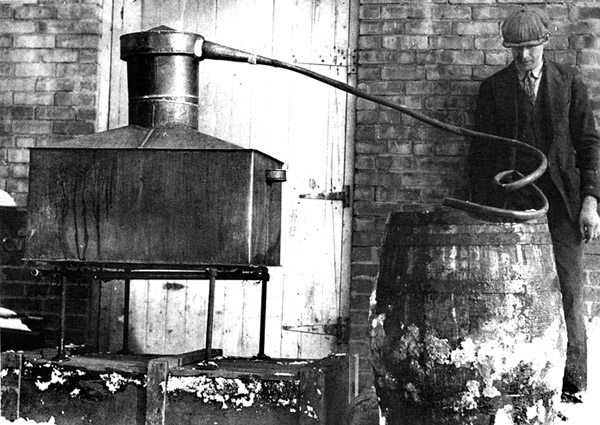 NASCAR is an acronym for "National Association for Stock Car Racing." Disparaging onlookers sometimes unfurl its meaning as "Non-Athletic Sports Cars And Rednecks." Whatever the definition, NASCAR racing involves a lot of cars traveling around an oval track at speeds of 150+ miles per hour. Many of the cars are less than six inches from the bumper of the car ahead. The potential for spectacular crashes is obvious. It's tense, despite the comic's sarcastic-but-true description of, "Oh look! They're making a left turn! Oh look! They're making another left turn!"
NASCAR is an acronym for "National Association for Stock Car Racing." Disparaging onlookers sometimes unfurl its meaning as "Non-Athletic Sports Cars And Rednecks." Whatever the definition, NASCAR racing involves a lot of cars traveling around an oval track at speeds of 150+ miles per hour. Many of the cars are less than six inches from the bumper of the car ahead. The potential for spectacular crashes is obvious. It's tense, despite the comic's sarcastic-but-true description of, "Oh look! They're making a left turn! Oh look! They're making another left turn!"Speed is exciting. Fast is alluring, especially when slow seems to rule the human roost. Speed takes me beyond my plodding confines. I can soar with speed, even if it's just imagined or second-hand. But now, it seems, the willingness to believe in and crave the speed offered by NASCAR has been diminished or supplanted by the magical and lightning-fast connections the Internet can achieve. Give me aps and give them to me now!
Speed.
Not that NASCAR is going broke in the face of Fox' and ESPN's turned backs. NBC has signed on for $4.4 billion over ten years. But still, a dwindling fan base cannot be discounted. The fickle have moved on to something more magnetic, something faster, some new-and-improved racetrack on which there is no checkered flag. I think NASCAR on television is dumber than a box of rocks, but I also feel a wispy sense of loss I can't quite get a handle on.
NASCAR, if I am not mistaken, had its roots in a southern and western tradition of distilling home-made booze. The tradition of making money by selling intoxicants was hardly new. George Washington owned the largest distillery in the country in the 18th century.** By the time Prohibition came along (1920-1933) the enormous thirst of the nation meant that there was money to be made ... but you had to outrun the cops and other enforcement officials. High-speed chases in which a thirsty nation rooted for the bad guys who were just making a laudable living by their own hard work were a part of the mix. And NASCAR evolved not just as an entertainment, but with a whispered memory of the daring young men who thumbed their individualistic noses at the idiotic establishment.
NASCAR was not just speed, it was also the woo-hoo of individualism flipping the bird at intrusive, goodie-two-shoes conformist dimwits. Up with the little guy!
And perhaps that is a part of my wispy sense of loss as NASCAR devolves as a focal point, even if it is not my own. I like rooting for the little guy because little guys are the guys on whom the big boys, frequently without acknowledgment, rest their paraded laurels.
But I sense as well that I am probably off-base to feel sad. What is the Internet -- at least for the moment -- if not the power and speed of the little guy? With blinding speed, people in Chile can confer and connect with people in China. Public opinion may be a genie that China and other big boys would prefer to stuff back into a dimwit bottle, but -- woo-hoo! -- they can't do it (yet), not least because the money that buttresses their power and prestige rests on ... oh shit! ... the Internet.
The Internet is fast and powerful and woo-hoo ... even as it strikes me as effete and gutless and diminishing of the human capacity to seek out an actual-factual checkered flag. NASCAR may be dumber than a box of rocks, but there is a can-do sweat and courage and perhaps glory that I have a hard time attributing to a 141-character text message... a message that seems to suggest a social connection even as it insists on an even greater human divide.
Speed. It's heady stuff.
** I was going to mention here that John F. Kennedy probably never would have become president without the rum-running millions his father, Joseph, made during Prohibition only to discover that despite all the second- and third-hand stories told, there seems to be no concrete evidence that Joseph actually was a bootlegger.

No comments:
Post a Comment